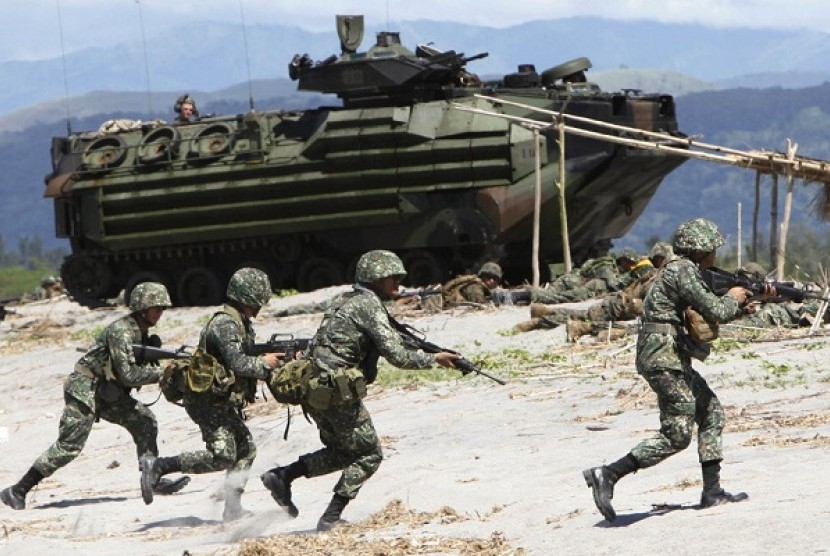REPUBLIKA.CO.ID, TOKYO -- Japanese Prime Minister Shinzo Abe on Wednesday moved close to winning approval from the island of Okinawa on a replacement for a U.S. air base, a move that would resolve a nearly 20-year-old deadlock that has strained ties with Washington.
A deal with officials in Okinawa would be an achievement for Abe, who has promised a more assertive Japanese military at a time when the U.S.-Japan security alliance has been tested by tension with China over disputed islands in the Pacific.
The potential breakthrough came at a meeting between Abe and Okinawa's governor, Hirokazu Nakaima, who has held an effective veto over long-delayed plans to build a new U.S. Marine air base to replace the Futenma base.
Nakaima praised Abe for offering a range of concessions to address various worries, including promises of larger budget outlays on Okinawa over the next seven years and the prospect of a tighter environmental controls over U.S. bases.
"What has been offered is surprising and splendid," Nakaima told Abe, adding later that he would make a final decision on approving construction of a new base on Friday.
The United States and Japan agreed in 1996 to close the Futenma base but plans for a replacement stalled in the face of fierce opposition in Okinawa, which hosts more than half of the U.S. forces in Japan. Okinawa was occupied by the United States until 1972.
Japan's ties with the United States were strained when then-Prime Minister Yukio Hatoyama sought to keep a campaign promise to move the U.S. base off Okinawa. U.S. officials have said the new Marine facility needed to be on the island.
The Futenma base has been a lightning rod for criticism because of its location in a densely populated area. The proposed replacement base would be built on the Henoko coast near the town of Nago, removed from the more crowded southern tip of Okinawa.
Activists living in tents have been staging a protest near the site of the proposed Henoko base for almost 10 years and have promised demonstrations if Nakaima approves construction.
In April, the United States and Japan announced a plan to close Futenma as early as 2022.
Abe said the government would study whether that plan could be accelerated and would begin negotiating an agreement with the United States that could allow for more local oversight of environmental issues at U.S. bases.
That would mark the first change to the bilateral Status of Forces agreement that has applied to U.S. military activities in Japan since the 1960s.
"We have never even had a discussion of this kind," Abe told reporters. "We want this to produce a solid result."
Although Abe remains generally popular, Okinawa handed his Liberal Democratic Party one of its few defeats in July elections. In addition to anger over the issue of U.S. bases, sugar farmers in Okinawa also oppose Abe's plans to join the Trans Pacific Partnership trade agreement.


